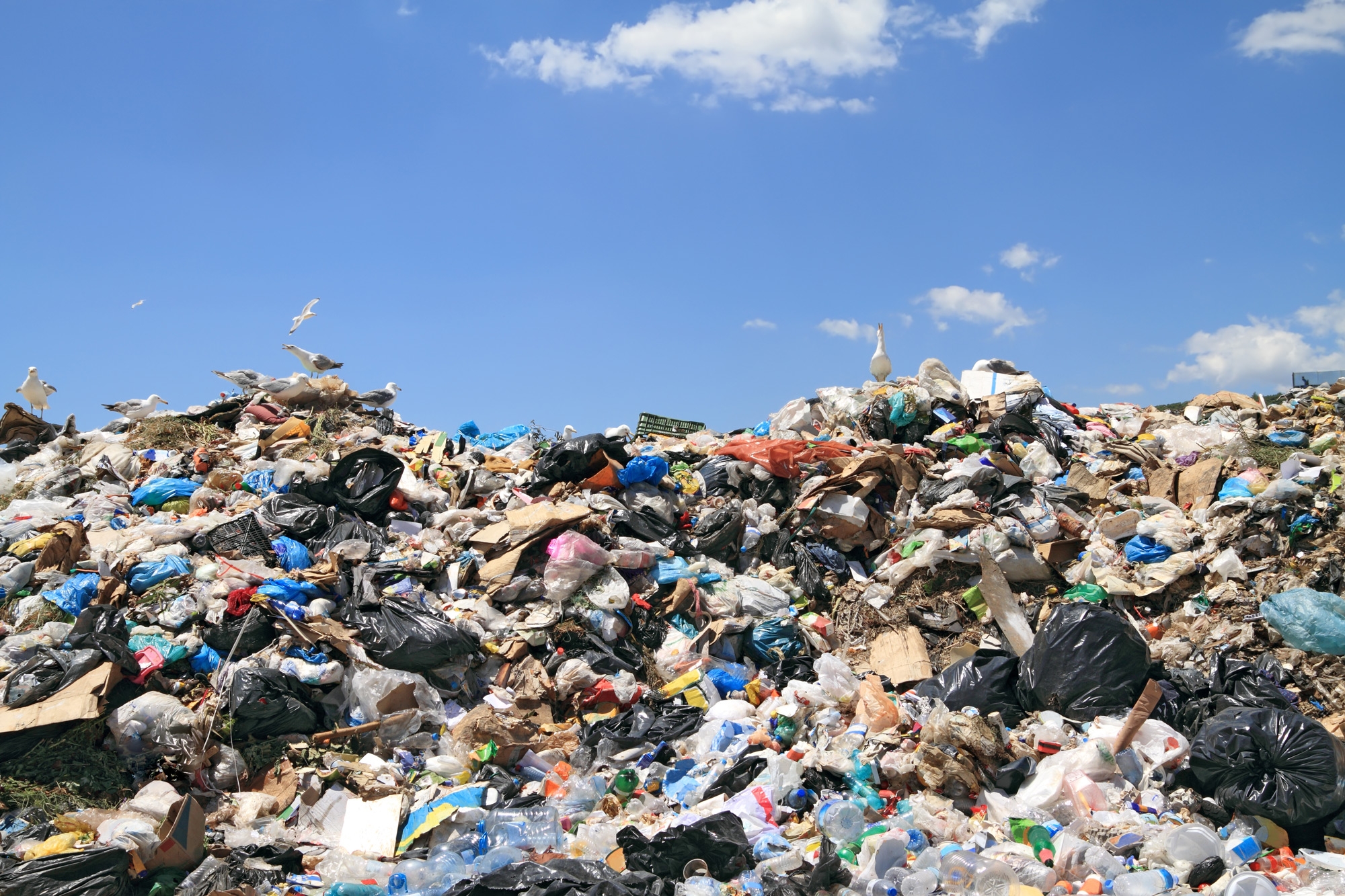Engagement Overview
Welcome to our self-guided meeting about residential waste management in Wheat Ridge! You'll have the opportunity to learn about the City's current system, learn about potential alternatives, and tell us your opinions.
What to Expect
- Learn About the Project: explore the history of residential waste management in Wheat Ridge, and learn more about the goals of this project.
- Learn About Waste Hauling Methods: explore different ways to handle residential waste in our city, and the pros and cons of each.
- Learn About Fee Structures: consider how different fee structures could be applied to these methods.
- Share Your Thoughts: after learning about the different methods and fee structures, take the survey at the end and let us know what you think. Your opinions are highly valued, and will help shape future decisions!
How Long Will It Take?
We anticipate it will take 20-30 minutes to read through the content and complete the survey at the end.
Ready?
Click the green arrows at the bottom of the screen to navigate through the meeting.

About the Project
The Residential Waste Engagement Project aims to understand your opinions about the current residential waste management system in Wheat Ridge. It will also look at potential future changes to this system. If the City decides to make a change, these changes would apply to residential dwellings with seven (7) or fewer units. The feedback received throughout this project will play an important role in shaping future decisions regarding residential waste management in Wheat Ridge.
In recent years, residential waste management has become a significant topic of discussion in Wheat Ridge. Currently, Wheat Ridge has an open market system for waste management, which means that residents individually choose and contract with licensed waste haulers operating in the City.

Project Goals
- Maximize Resident Engagement: reach a broad spectrum of Wheat Ridge residents, encouraging active participation from all corners of the community
- Inclusivity and Accessibility: ensure that all residents have the opportunity to provide input and share their perspectives
- Neutral: remain impartial while offering clear and unbiased information to foster well-informed feedback from the residential community
- Informative: information, feedback, and analysis resulting from this project will be presented to City Council with the goal of informing future decision making

- Project kick-off completed: June 2023
- Phase 1 completed: Research and Public Engagement Plan Development Summer 2023 to Fall 2023
- Currently in Phase 2: Initial Public Engagement Fall 2023 to Spring 2024
- Phase 3 upcoming: Input Analysis and Additional Public Engagement Spring 2024 to Fall 2024
- Phase 4 upcoming: Final Analysis and Recommendations Fall 2024
Residential Waste History

- 2010: Organized Waste System on Ballot - 65% of voters in opposition
- 2018: Resident Survey - 53% of respondents believed "Diverting trash from the landfill" was "essential" or "very important". 38% of respondents believed "Starting a compost program" was "essential" or "very important".
- 2021: Resident Survey - 55% of respondents believed "implementing organized trash hauling in neighborhoods" was "essential" or "very important". 62% of respondents believed "Expanding access to residential recycling and composting services" was "essential" or "very important"
- 2022: City Council - City Council provided direction for Wheat Ridge staff to pursue the creation and implementation of a community outreach to better understand what Wheat Ridge residents would like to see regarding waste management options before pursuing any one option in greater detail.
What are residents saying about our waste management system?
In the past, residents have expressed a wide range of opinions, including both a desire for change and satisfaction with current practices through a variety of input opportunities including the Let's Talk program, Sustainable Neighborhoods program, and resident surveys.
The team kicked off the Residential Waste Engagement Project with a series of stakeholder listening sessions with Sustainable Wheat Ridge, Sustainable Neighborhood leads, City Council, media, and community members. Below are some key takeaways that we've heard so far, but you'll be able to provide your feedback in the survey at the end of this meeting.
Takeaways
- The current waste management system in Wheat Ridge needs to be improved.
- There should be transparency in pricing structure.
- Wheat Ridge should consider alternative waste management options, such as pay-as-you-throw system or incentives for certain haulers.
- The number of trash trucks on our roads needs to be addressed.
- If the City decides to make a change, make sure to consider small business owners.
- Residents should be able to choose their hauler.
Waste Hauling Options
There are several waste management methods that could be used in Wheat Ridge. Below is a breakdown of these different systems and the pros and cons for each. Click on each method to learn more.
Once you’ve learned more about each method, be sure to provide your feedback in the Share Your Thoughts section to let us know which method you like most and which one you like least. Your feedback is important to us! If you have any questions or comments as you review each method, you can share your thoughts below the pros and cons in each section.
Description:
Open markets allow numerous haulers to do business for waste services. There are no restrictions on who can provide waste management services, and any licensed company can enter the market and compete for business.
Similar to: Lakewood
 Pros
Pros
For Resident:
- Customers can choose which company they want to use.
- Encourages competition and potentially drives rates down.
- Residents may still procure agreements from the hauler of their choosing and negotiate rates, which are in line with their budgets and expectations.
For City:
- Less staff time due to no contracts.
For Hauler:
- Ability to continue to provide service.
 Cons
Cons
For Resident:
- Neighbors may choose to not have services leading to potential illegal dumping.
- More trucks on neighborhood roads.
- May have multiple days of service on your block.
- Burden to research, select, and negotiate contract with hauler.
For City:
- Potential for less quality control.
- No control over rates, contract or services.
- Impacts to infrastructure from inefficient truck routes.
- Decreased neighborhood aesthetics due to no set service day.
- Increased greenhouse gas emissions due to inefficient truck routes.
For Hauler:
- May not have majority of service.
Description:
Wheat Ridge would choose to contract with a residential waste hauler through a competitive process. To maintain market competition, the City could add districting to this strategy. This would allow haulers to bid on servicing a district, which could result in more than one city-contracted hauler. Residents would have the ability to opt-out of the program, but would likely be required to pay a fee.
Similar to: Golden and Arvada
 Pros
Pros
For Resident:
- Contract would lock-in a rate charged by the hauler.
- Don't have to negotiate contracts or shop around for the lowest prices.
For City:
- Establish performance standards that would allow the municipality to cancel a contract if standards aren't met.
- Fewer collection trucks on the roads would mean less wear and tear on streets, less noise pollution, and less greenhouse gas emissions.
- Improved neighborhood aesthetics due to more efficient service.
For Hauler:
- Can require contracted hauler to keep improving services and continue innovation.
 Cons
Cons
For Resident:
- Eliminates consumer choice.
- Ability to opt-out, but may require an opt-out fee.
For City:
- Interrupts free-enterprise system.
- Increased staff time to manage contract.
For Hauler:
- Could put smaller haulers out of business.
- Haulers may not have the capacity to serve an entire community; some would not be able to bid at all.
Description:
The city would purchase trucks and carts and provide waste collection services to residents.
Similar to: Denver
 Pros
Pros
For Resident:
- Residents all receive the same level of service from the City.
- Don't have to negotiate contracts or shop around for the lowest prices.
For City:
- City has control of costs and service levels provided.
- Fewer collection trucks on the roads would mean less wear and tear on streets, less noise pollution, and less greenhouse gas emissions.
- Improved neighborhood aesthetics due to coordinated service days.
For Hauler:
- Not Applicable.
 Cons
Cons
For Resident:
- Eliminates consumer choice to select hauler.
For City:
- City does not have necessary infrastructure or budget to provide waste collection services.
- Significant initial investment for city to purchase trucks and carts and hire employees to provide the service.
For Hauler:
- Eliminates needs for services.
Description:
The city would go out to bid for a preferred hauler. Residents would have the option of opt-in or selecting to go with the preferred hauler at the city's negotiated rate and service.
Similar to: Several neighborhoods in Wheat Ridge
 Pros
Pros
For Resident:
- Would likely result in lower prices and higher levels of service due to hauler operating at a larger scale.
- Would still have choice of hauler.
For City:
- Would likely result in lower prices and higher levels of service due to hauler operating at a larger scale.
- Would still have choice of hauler.
For Hauler:
- Can incentivize preferred hauler to keep improving services and continue innovation.
 Cons
Cons
For Resident:
- Would have to take action to sign-up with the preferred hauler.
For City:
- City chooses the preferred hauler and there is an advantage to that business.
- Preferred hauler is optional, and will not decrease the number of trash trucks, noise pollution, and greenhouse gas emissions unless a significant portion of residents opt-in to the program.
- Neighborhood aesthetics unlikely to improve unless a signification portion of residents opt-in to the program.
For Hauler:
- Other haulers may not be able to provide service on the selected days.
Description:
An open market system would be maintained with multiple haulers serving residents. However, haulers would be required by the City to meet enhanced requirements in order to receive their business license. For example, enhanced requirements could include pay-as-you-throw pricing, pickup day requirements, recycling and compost requirements, minimum number of customers, and customer service standards.
Similar to: Boulder
 Pros
Pros
For Resident:
- Customers can choose which hauler they want to use.
- Encourages competition and potentially drives rates down.
For City:
- Provides more enforcement over contract and services.
- Additional requirement can be placed on haulers such as require providing additional services such as recycling or organics collection.
- Enhanced licensing can include requirement for minimum number of customers which can reduce number of trucks on the city streets over time.
- Could improve neighborhood aesthetics depending on requirements.
- Could decrease the number of trash trucks on roads, noise pollution, and greenhouse gas emissions depending on requirements.
For Hauler:
- A competitive market for the haulers with more control over rates.
 Cons
Cons
For Resident:
- More trash trucks on neighborhood roads when compared to municipal and contracted hauling methods.
- May have multiple days of service on your block.
- Burden to research, select, and negotiate contract with hauler.
For City:
- More staff time managing multiple licenses.
For Hauler:
- More enforcement and oversight from city over license and services.
Fee Structures
In addition to the different waste hauling options, there are also different options for fee structures, or how haulers can charge for waste removal. If you have any questions or comments as you review each method, you can share your thoughts below the pros and cons in each section.
Method: Flat Rate Waste Disposal
Description:
Residents pay a fixed amount for waste disposal services regardless of the volume of material placed at the curb.
 Pros
Pros
For Resident:
- Users don't usually know the actual costs of disposal.
For City:
- Easier to manage because you don't need to monitor the container sizes placed at curb.
For Hauler:
- Easier to manage, don't have to consider container size.
 Cons
Cons
For Resident:
- Those who generate less pay for those who generate more.
- May have additional fees for disposal of certain types of wastes.
For City:
- No incentive to reduce waste.
For Hauler:
- May not cover all costs.
Method: Pay-as-you-throw
Description:
Collection and costs are based on the size of container and how much material you place at the curb.
Similar to: Denver
 Pros
Pros
For Resident:
- Gives residents an incentive to participate in recycling and composting programs.
For City:
- Creates an economic incentive for people to reduce the volume of trash they generate and decrease the amount they pay.
For Hauler:
- Costs typically cover services provided.
 Cons
Cons
For Resident:
- Can be costly for low-income households.
For City:
- Could increase illegal dumping.
- Could increase contamination in the recycling and organics streams.
For Hauler:
- Makes enforcement of services more complicated.
Share Your Thoughts
We want to hear more about your thoughts on waste management in your neighborhood. The feedback received throughout this project will play an important role in shaping future decisions regarding residential waste management in Wheat Ridge.
Next Steps
Thank you so much for your participation in the Wheat Ridge Residential Waste Engagement Project. The feedback received throughout this project will play an important role in shaping future decisions regarding residential waste management in Wheat Ridge.
This self-guided online meeting is the first phase of public engagement for the project and will close on January 26, 2024. The project team will analyze the results and will gather additional input from residents in Spring 2024. The final engagement report with proposed recommendations on future waste management systems will be published in Fall 2024.
Sign-up for the distribution list to be notified of project updates and future engagement opportunities.
Visit the project team in-person at the upcoming open house!
 Date:
Date:
December 13, 2023
 Time:
Time:
Anytime between 4:30 and 6:30 p.m.
 Location:
Location:
Wheat Ridge Recreation Center, 4005 Kipling St, Wheat Ridge, CO 80033

